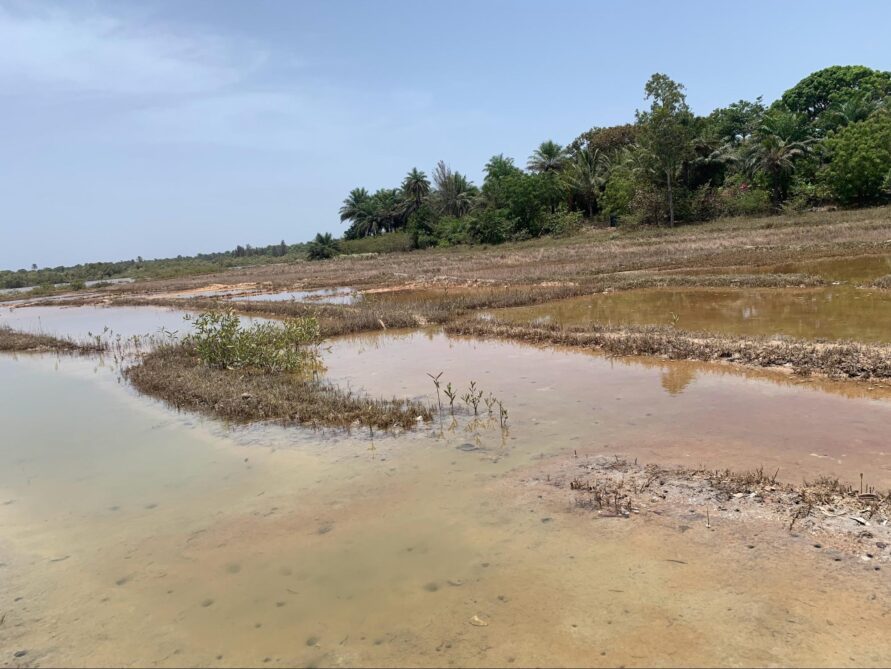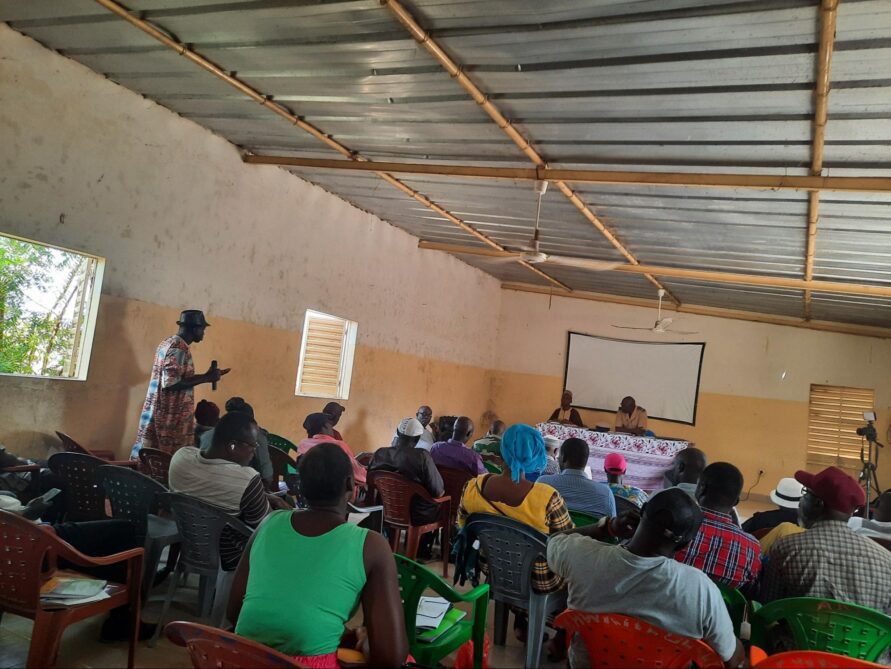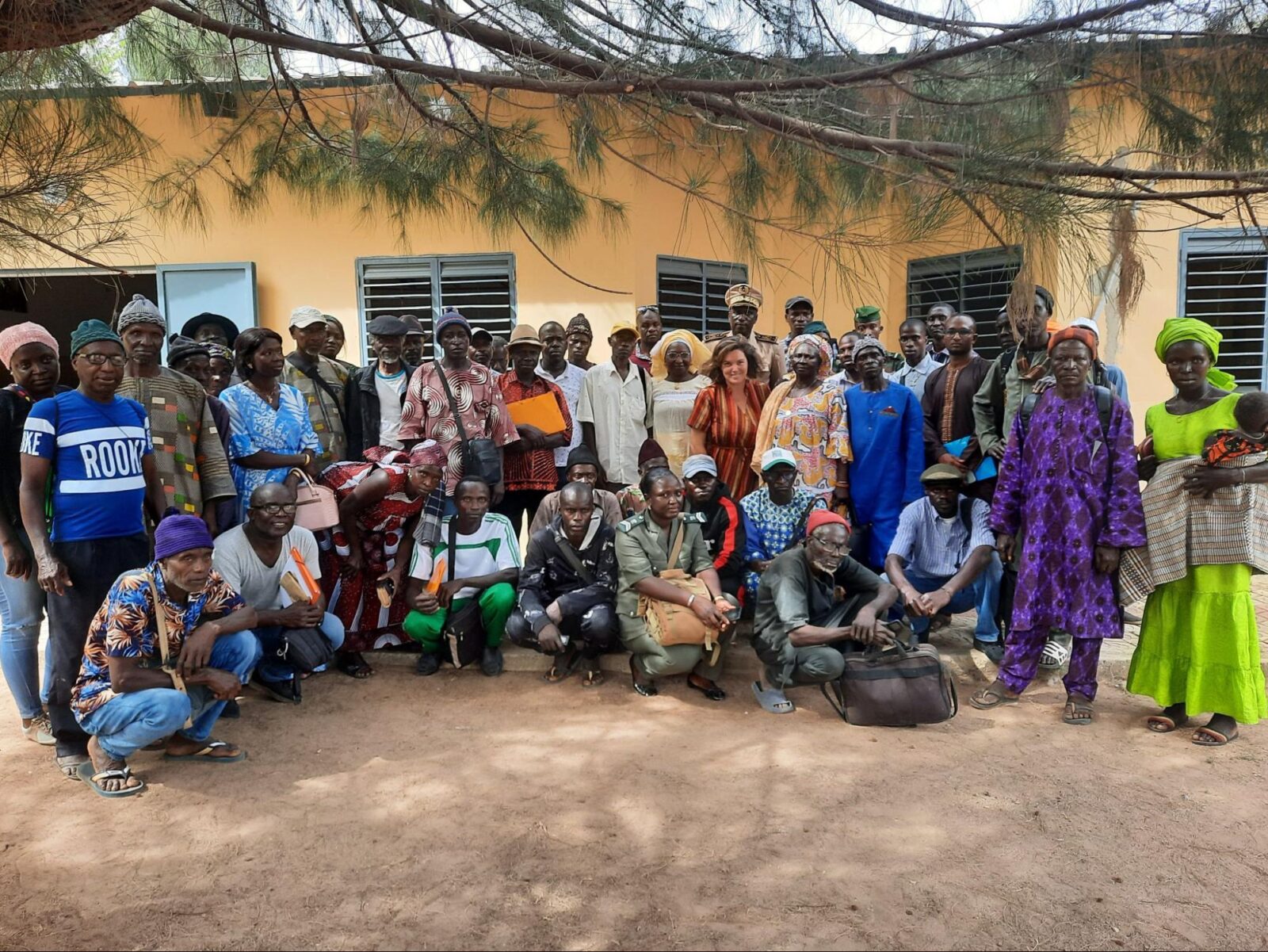Much of the news coming out of the conservation world is pretty depressing these days: we are approaching a point of no return on climate change, with massive sea level rises and mass extinctions predicted within the next century. In the midst of so much doom and gloom, positive stories of communities making a difference are all the more important to keep us going.
West Africa is one of the parts of the world where climate change and human population pressure is having a big impact on coastal ecosystems. In Senegal, much of the northern town of Saint Louis is being washed away by coastal erosion, and ocean fish stocks are on the point of collapse because of industrial overfishing. West Africa also has one of the fastest-growing human populations in the world, so these pressures will impact the lives of hundreds of millions of people.
But Senegal is also home to the world’s largest mangrove replanting effort. Whilst some reforestation initiatives fail due to misguided off-setting schemes, the planting of unsuitable species, or planting sites and unpredictable weather, this massive effort in Senegal is bearing real results. A recent satellite imagery analysis done by Blue Ventures comparing mangrove cover in Senegal’s largest Community-managed Marine Protected Area (CMPA) shows that the mangrove replanting effort has succeeded.
Our West Africa mangroves advisor, Awa Rane Ndoye, examined mangrove cover visible on 2011 satellite imagery five years after mangrove replanting efforts had begun in the area and compared it to mangrove coverage of the same area in 2022. The research focused on the boundaries of the 123,000-hectare community marine protected area of Ufoyaal Kassa-Bandial (UKB), Senegal’s largest marine protected area. Her analysis found that mangrove coverage had increased from 13,442 hectares to 19,151 hectares, a nearly 50% gain in just over a decade.
Satellite imagery analysis is only the first step in our engagement with the more than 120 villages inside UKB. After presenting our findings to the management committee, we focused on the much smaller areas–some 350 hectares–where mangroves had been lost during the same time and decided to do a joint field mission to see what was happening at these sites of mangrove loss.

Green shows areas of mangrove regrowth | Peter Bouckaert, Blue Ventures
In some areas, coastal erosion linked to climate change has resulted in mangrove loss, removing crucial natural protection for coastal villages. In one village, 50 metres of riverbank and mangroves had been lost, bringing the river right up to the houses of the villages once protected by a mangrove barrier. Anti-erosion barriers seemed only partly effective and had often been swept away by the river.
In other areas far away from the river, increased salinity had caused mangroves to die, and replanting efforts had used a species of mangrove with a relatively low salinity tolerance instead of more salt-tolerant species. Our visit to the site highlighted the importance of salinity tests before replanting starts to determine the right species for a specific site.

We also visited sites where human efforts to create rice fields, which often failed because of high salinity and fish ponds, caused mangrove loss. In the areas where we found abandoned rice fields because of high salinity, simply restoring the water flow by removing dams allows mangroves to return to the area rapidly; when we undo the damage we do to nature, nature can rapidly rebound.

Our collaboration with the UKB CMPA is only a few months old, but we already see good results from science-supported community conservation efforts. By combining science and field visits, we have identified where we can place mangrove nurseries and restore natural water flow, working with communities to ensure the sustainability of the ecosystems they depend on for their livelihoods.
Getting communities involved in Conservation
The community-managed UKB marine protected area was only created by Presidential decree in 2022, so it is still setting up its management structures and plans. Effectively managing a conservation area of 123,000 hectares, 20 times the size of Manhattan and home to an estimated 77,000 people, is an immense challenge which can only be met when the communities living within it are directly involved.
With this goal in mind, Blue Ventures supported the first community consultations between the appointed management committee and the communities living in the CMPA in April and May 2023. Our consultations aimed to inform community leaders about the creation of the CMPA, explain what this meant for the communities who lived within it, and hear their ideas about how the vast area should be managed.
We decided, with the management committee, to divide the CMPA in four zones and to hold four separate community consultations to increase effectiveness. We had excellent participation in the consultations, with around 70 community members and leaders attending each consultation and engaging in lively discussions about how to manage their natural resources. For many participants, especially from the more remote parts, it was the first time they learned that the area had been declared as a CMPA, and we, therefore, dedicated a lot of time introducing the concept and discussing how communities could be involved in its management.
For everyone involved, it was a powerful experience to see so many community members step forward to express their desire to support community-led conservation. They have all seen their fish stocks dwindle recently and were keen on getting involved.

Following the community consultations, the management committee and Blue Ventures returned to the drawing board to include the suggestions made in the management plan for UKB. In the next few months, our work will focus on how to turn the discussions into effective community-led conservation management steps on the ground, working together to preserve the precious mangrove ecosystems of the area.

We saw an incredible opportunity to bring about meaningful community-led marine conservation at scale in the Casamance region of Senegal. The government already recognises the importance of community involvement in conservation, having declared the MPAs as community-managed, and the communities are keen to take up their responsibility to manage their ecosystems. It is up to all of us now to translate these commitments into meaningful action that positively impacts the ecosystems and the lives of these communities: Thriving Fisheries, Thriving Communities.

